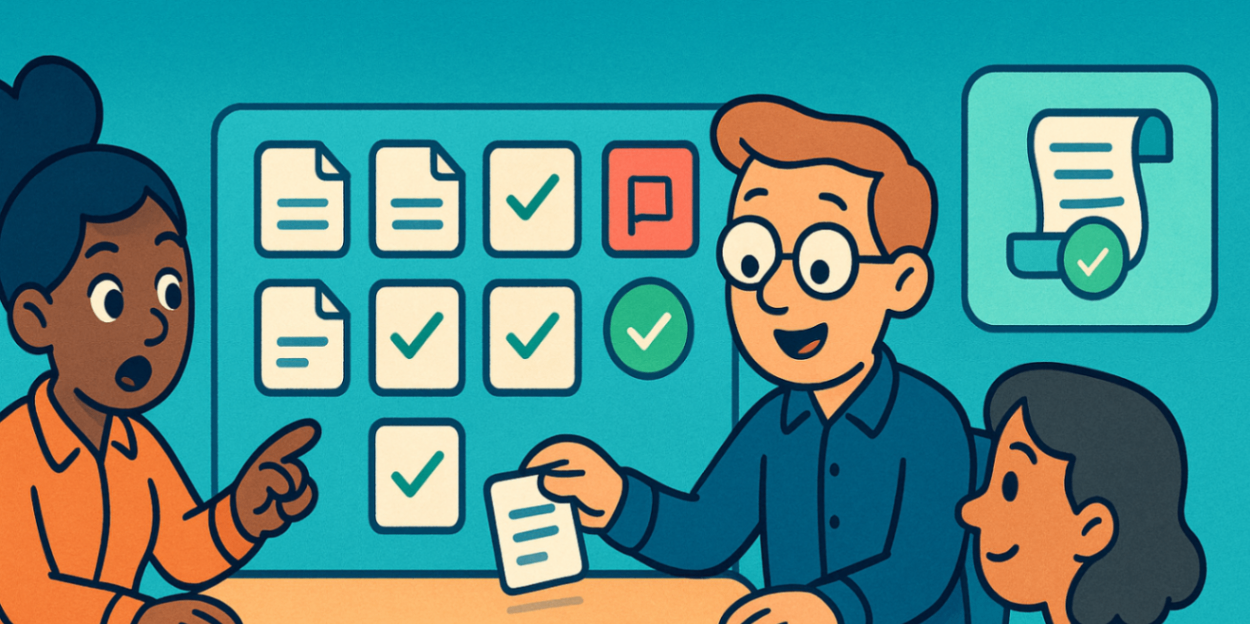
what support coordinators want from plan managers explained
28 August, 2025
Key Highlights
-
A support coordinator and plan manager have distinct but complementary roles in your NDIS journey.
-
Plan managers handle the financial aspects of your NDIS plan, such as paying invoices and tracking budgets.
-
Support coordinators help you connect with service providers and build your capacity to manage your supports.
-
Effective communication and transparency between these two roles are what support coordinators value most.
-
Strong collaboration ensures you use your NDIS funding effectively to achieve your goals.
-
This partnership reduces your administrative burden and helps you make informed decisions.
Key Differences Between Plan Managers and Support Coordinators in the NDIS
Within the National Disability Insurance Scheme (NDIS), both the plan manager and the support coordinator help you in different ways.
A plan manager does most of the financial tasks. The plan manager pays the providers from your plan and takes care of your budget. They handle the money so you do not have to.
Meanwhile, a support coordinator helps you use your plan. The support coordinator explains your supports to you, helps you connect with providers, and shows you how to manage your services on your own. So, the plan manager looks after your money, while the support coordinator helps with working with others and building your skills.
Roles and Responsibilities of a Plan Manager
A plan manager helps with the financial management of your NDIS plan. The main job of a plan manager is to make managing your NDIS funds easy for you. They handle invoices from your service providers, making sure payments are quick and right. That way, the people who work with you get paid on time. Think of them as your bookkeeper for your NDIS budget.
Another crucial role of a plan manager is to keep track of how you spend your money. They send regular reports, so you know where your money goes. This way, you do not spend too much by mistake, and your NDIS funds last until the end of your plan. It is also important for support coordinators to have plan managers who do these jobs well, as it helps make your supports more secure.
The financial management skills of a plan manager give you more choice and control. With a plan manager, you can use both NDIS-registered and unregistered providers. This helps you try more types of services and makes it easier to reach your NDIS goals.
Roles and Responsibilities of a Support Coordinator
The support coordinator is here to help you through the NDIS. They make sure your plan works for you. Their goal is to help you find the right support providers and community services that match your NDIS goals. They talk with you to know what you need. With this, they help you pick the best support for your life.
A big part of their job is support coordination. They help you plan assessments, look after your service agreements, and make sure your services all work well together. To do this, they need clear and current numbers about your money from plan managers. This is so the services picked are not over the amount in your NDIS plan.
You have different levels of support when it comes to support coordination. You can get only support connection, or more help with specialist support coordination if things are more tricky. No matter what level you get, support coordination wants you to feel sure and grow in managing your own supports later.
Qualities Support Coordinators Value in Plan Managers
For a support coordinator, a top plan manager is a key part of a person’s NDIS journey. The plan manager is more than someone who just handles money. They are there to work with you and get things done well. These people need a plan manager who knows all about NDIS finances. But it is also important for the plan manager to be someone you can count on and who talks with you often.
This kind of working together matters if you want to help someone with their support needs. When a plan manager answers you fast and is clear, it helps the support coordinator show the participant that their money is being taken care of. The trust built here will help get the best results for the NDIS participant.
Communication Styles and Responsiveness
Good communication is at the heart of a strong partnership between a support coordinator and a plan manager. The support coordinator needs clear and fast information to do a good job. When a plan manager answers quickly, it helps avoid problems and delays. This makes it easier to get support for the participant and to fix any problems with invoices or funding when they come up.
To help make communication better, a plan manager should set up easy ways to get in touch. The coordinator can have one main person to talk to, or there can be a special email only for these questions. This helps keep everyone on the same page. It is also helpful for plan managers to let the support coordinator know about payment or funding problems early. Then, the support coordinator can talk to the participant or provider right away and find a way to fix the issue.
In the end, when a plan manager communicates well, it helps build trust when they are working together. The support coordinator wants a plan manager that gets their role and gives the information they need without making them ask over and over again. Some good ways to improve communication in plan management and the NDIS are:
-
Providing a dedicated contact person for support coordinators.
-
Using clear email subject lines that include the participant's name or NDIS number.
-
Acknowledging receipt of invoices and inquiries within one business day.
-
Offering access to a shared online portal for real-time
Transparency, Accuracy, and Reliability
Support coordinators care about more than just talking to people. They want their plan manager to be clear, correct, and someone they can count on. Being clear, or showing transparency, means giving a full and honest picture of the participant's NDIS funding. Support coordinators want to see how the money is used. Then they can help people make good choices about their supports, now and later.
Getting things right, or being accurate, matters a lot, too. When invoices are handled the wrong way, or budget reports are not correct, it can lead to problems. There can be arguments with providers, or a person may run out of money without warning. A plan manager who gets their reports right every time lets the support coordinator feel sure that the details they share are right.
To bring all this together, a plan manager needs to be someone you can rely on. This means they pay invoices on time, send reports when they say they will, and always take care of the participant’s funds. Being reliable is a must, because this is what keeps everything running smoothly for people who need the support.
Collaboration Strategies for Better Participant Outcomes

Good teamwork between a support coordinator and a plan manager helps ndis participants get better results. When they work together, ndis participants get smooth and complete help. This means that the person's goals match their budget, so there is no mix-up between what support they need and the money there for it.
This way of working makes the ndis process easier for everyone. The support coordinator connects the participant with services, and is sure that the plan manager takes care of the money and payments with no trouble. Working together like this takes away a lot of stress for the person. The participant can then spend more time reaching their goals and feeling good.
Best Practices for Sharing Information
Clear and steady information sharing is important for strong teamwork. A support coordinator needs the plan manager to give up-to-date money details. This helps when they have to guide people in using their NDIS plan the right way. The best way is to set up a system so this info is there for everyone and easy to get and understand.
Good communication is a big part of this. The plan manager can send regular, automatic budget updates. There is no need to wait for the support coordinator to ask. This way, the coordinator knows how much the participant is spending. The coordinator can also spot any issues with service providers early, before they turn into bigger problems. When everyone knows the financial side of the NDIS plan, it really helps.
To help with smoother information sharing, plan managers can try these ways:
-
Give support coordinators view-only access to an online participant portal.
-
Send automatic budget summaries by email each month.
-
Set up a clear way to flag and fix invoice differences.
-
Hold short, regular check-in meetings for people who have complex plans.
Streamlining Plan Reviews and Providing Timely Updates
Plan reviews are a critical point in a participant's NDIS journey, and a plan manager plays an important part in their success. To support coordinators during this time, plan managers must provide timely updates and comprehensive financial summaries. These documents are essential evidence to demonstrate how the NDIS plan funding has been used to work toward the participant's goals.
A plan manager can streamline this process by preparing a detailed expenditure report ahead of the review. This report should clearly outline spending across all support categories. Having easy-to-understand monthly budget reports allows the support coordinator and participant to track of your funding usage and justify requests for future support.
This proactive support helps the coordinator build a strong case for the participant's next NDIS plan. A simple, clear summary table can be incredibly effective.
|
Budget Category |
Total Allocated |
Spent to Date |
Remaining Funds |
|---|---|---|---|
|
Core Supports |
$20,000 |
$14,500 |
$5,500 |
|
Capacity Building |
$15,000 |
$11,200 |
$3,800 |
|
Capital Supports |
$5,000 |
$3,000 |
$2,000 |
Conclusion
Clear communication between support coordinators and plan managers is essential for making the NDIS journey smoother. When plan managers respond quickly, share details openly, and build trust, it helps coordinators deliver better outcomes for participants. This collaboration ensures families feel supported, informed, and confident in their NDIS plans.
Book your consultation today and discover how our plan management team in Liverpool can work alongside your support coordinator to achieve the best results for you and your family.
Frequently Asked Questions
What common challenges do support coordinators face when working with plan managers?
A support coordinator can run into problems like slow replies, late payment of invoices, and not knowing the current NDIS funding balance from the plan manager. When this happens, it can stop services from running smoothly. This also makes it hard to handle service agreements and look after the participant well.
How can plan managers better support coordinators during plan reviews?
A plan manager helps a support coordinator during plan reviews by giving clear, up-to-date, and full monthly budget reports. The reports show what has been spent from the NDIS plan. This makes it easier to explain and support funding requests for the following year.
How do support coordinators prefer to receive updates from plan managers?
Most support coordinators want updates from a plan manager sent to them often. They like it when reports come on a regular schedule and automatically. They also need one person to talk to for urgent things. Clear communication by email or using a shared portal helps a lot. People want to easily see what happens with NDIS funds. Good updates from their plan manager about NDIS and funds matter to all of them.
.svg)

















